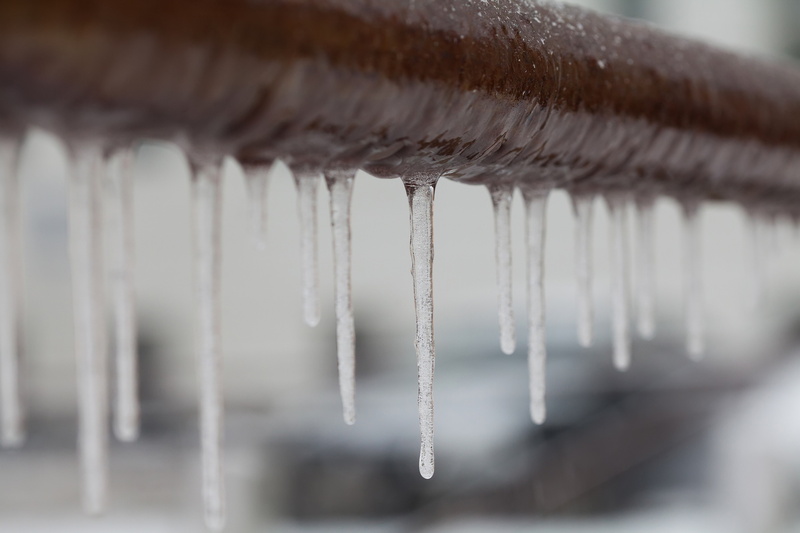
 We’ve officially entered the time of year known for chilly temperatures, falling snow, and, unfortunately, freezing pipes. Frozen plumbing can actually cause a good deal of damage if not addressed right away. The reason for this is because as water freezes it expands, which puts pressure on the walls of the pipes, increasing the chance that they will burst. Managing leaking or ruptured plumbing is probably the last thing you can envision yourself facing this winter, particularly over the holidays. If you truly want to protect your pipes from such incidences, there are a few steps you can take. Read on to learn more, and contact our team to be put in touch with a professional Andover, MN plumber, whether you have damaged plumbing or would just like more information about preventive plumbing care.
We’ve officially entered the time of year known for chilly temperatures, falling snow, and, unfortunately, freezing pipes. Frozen plumbing can actually cause a good deal of damage if not addressed right away. The reason for this is because as water freezes it expands, which puts pressure on the walls of the pipes, increasing the chance that they will burst. Managing leaking or ruptured plumbing is probably the last thing you can envision yourself facing this winter, particularly over the holidays. If you truly want to protect your pipes from such incidences, there are a few steps you can take. Read on to learn more, and contact our team to be put in touch with a professional Andover, MN plumber, whether you have damaged plumbing or would just like more information about preventive plumbing care.Follow These Steps to Protect Your Pipes!
Step 1: Open Your Faucets The pipes in your home most vulnerable to freezing are the ones outside your home, of course. If you have any outdoor faucets, such as those used for sprinkler systems or hoses, be sure to shut off the water flow to these points, and then open your faucets to drain any water that is left. Leave the faucets open through winter. It’s also a wise idea to invest in some affordable insulated caps for the hose and faucet openings. Step 2: Disconnect Hoses Disconnect any hoses that you used outside during the summer, before temperatures drop any lower. Make sure that similar to your outdoor faucets, these are drained properly before you store them for the winter. Step 3: Add Insulation to Your Pipes Your outdoor pipes are not the only ones vulnerable to freezing temperatures. You have pipes running through your home that can be impacted as well. This usually includes pipes that are under the sink, in crawlspaces, or in basements. They’re typically attached to faucets that you can’t turn off for the winter—like your kitchen sink or even your water heater. In order to protect these pipes from becoming frozen, the best thing to do is invest in some pipe insulating sleeves, which you can purchase at your nearest hardware store. Insulation will help keep the temperature of the water in your pipes from dropping too low. If you’re unable to find these sleeves or would rather try something else, you may be able to get by with towels. The idea here is to try and keep your pipes as warm and insulated as possible, no matter what material you decide to use.What If My Pipes Freeze Anyway?
Unfortunately, this is a possibility. When the weather gets cold enough for a long enough period of time, any precautions you took could prove fruitless. If this does happen, be sure to get in touch with our professional plumbers right away. Do not attempt to thaw pipes on your own, since the thawing process can cause pipes to burst, leading to injury for you.Contact Air Mechanical, Inc. today for all of your plumbing needs this winter and beyond.
